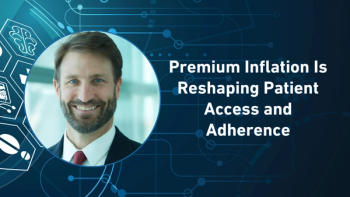
- Pharmaceutical Commerce - July/August 2009
Consumer website tracks drug recalls; links up with Microsoft HealthVault
Consumers might get product recall information faster than healthcare professionals
In the scramble to pull healthcare-conscious consumers onto the Web with online services, electronic-medical-record (EMR) storage and other bells and whistles, iGuard.org claims to be one of the fastest-growing currently, signing up 100,000 new users per month. The site, now almost two years old, was started to provide consumers information on medications, drug-drug interactions and product recalls—all part of getting access to “timely and reliable information about their prescription medications and over-the-counter supplements,” according to the company.
Most recently, Princeton, NJ-based iGuard.org has forged an agreement with Microsoft, which is developing its HealthVault service as a destination for healthcare consumers, a repository of EMRs and a player in the general category of health-related media. “By providing consumers with immediate, customized information regarding the safety of their prescription and over-the-counter medications, iGuard.org furthers our goal of enabling patients to take greater control over managing their own health,” said David Cerino, general manager of the Consumer Health Solutions Group at Microsoft.
iGuard.org claims 1.5 million consumers have already signed up for its service, which is free. It’s hard to tell whether the deal will bring more eyeballs to iGuard or to Microsoft HealthVault, but the larger game is who will become the premier
One other twist to the story is that, with consumers signed up on sites like iGuard, they may receive product-recall data faster than the
Articles in this issue
over 16 years ago
The Rise of 'Companion' Diagnostics for Specialty Pharmaceuticalsover 16 years ago
Our Readiness for the Attack of the Flu Bugover 16 years ago
The State of the Industry in Product Securityover 16 years ago
The Business Value of Brand Protectionover 16 years ago
MeadWestvaco Readies Portable Medication Packagingover 16 years ago
Oncology Drugs Add Promise, Stresses to Healthcare Deliveryover 16 years ago
On-Demand Digital Printing Rewires Pharma PackagingNewsletter
Stay ahead in the life sciences industry with Pharmaceutical Commerce, the latest news, trends, and strategies in drug distribution, commercialization, and market access.




